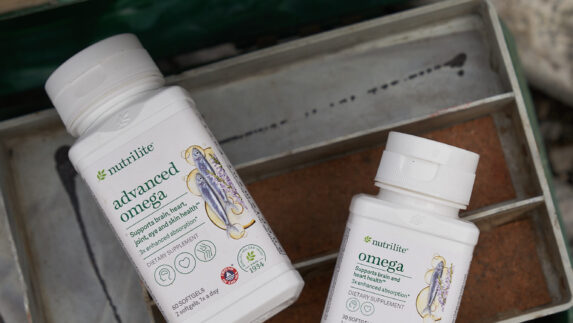Quick: Name some purple produce. You probably thought of eggplant, plums, grapes and maybe cabbage, right?
We’re betting carrots didn’t cross your mind. Why would they? For most of us carrots have always been decidedly orange. But here’s a little known fact: Orange wasn’t always the predominant color for carrots.
The earliest evidence of carrots being used for food is in the 10th century and those carrots were purple or white. Orange didn’t show up until about 600 years later. Why does this matter?
Because purple carrots are nutritionally unique. Their purple color means they are packed with anthocyanins, polyphenol antioxidants that help protect your body from harmful oxidative stress. In fact, purple carrots have nine times more polyphenol antioxidants than carrots of other colors. They also take about two months longer to reach maturity than other carrot varieties.
Searching for the perfect purple carrot
All that nutritional goodness is why the research team at the organic Nutrilite Trout Lake Farm in Washington State studied several varieties of the teeny, tiny purple carrot seeds (Seriously, they’re like a grain of sand) until they landed on one that would grow the best at the farm.
The sandy, loamy soil at Trout Lake East combined with its long days and hot, dry growing season yield the high content of key phytonutrients our scientists were looking for when they were formulating the Nutrilite Men’s Daily and Women’s Daily.
The chosen variety of purple carrot is pretty vulnerable in its early stages, and the organic farming methods at Trout Lake are just what it needs to thrive. The precision cultivation of flaming, GPS tractors and hand-weeding helps infuse oxygen into the root zone, encouraging healthy and strong plants with little competition from unwanted weeds that steal nutrients.
Back to our roots
Darwin Hintz, farm manager at Trout Lake East, said focusing on carrots goes back to the roots of the Nutrilite brand.
“Besides alfalfa, carrots were one of the earliest crops Nutrilite founder Carl Rehnborg worked with,” he said. “So it’s building on a legacy. But in addition, it’s coming up with anthocyanins that are necessary and have health benefits that orange carrots don’t have.”
Even when it comes to alpha and beta-carotene, which appears in both orange and purple carrots, the purple ones come out on top: purple carrots have twice the amount of nutrients as their orange counterparts, providing more support for vision health and the immune system.
Planting purple carrots
In addition to carefully selecting the seed variety for purple carrots, the farm team also carefully selected which field to plant them in. Crop rotation is key in organic farming and Trout Lake has decades of records showing what crops were grown where and when, and what treatments were given to the soil.
Knowing the soil’s history allowed the team to select the field with the most ideal nutrient levels and growing environment for the new crop. “It’s long-term thinking,” Darwin said, “knowing the history of the crop rotation and fertility programs that we’ve had for the last 20 years is invaluable.”
While purple carrots take nutrients from the soil to reach their high phytonutrient content, the farm teams also return nutrients during harvest by cutting off the green carrot tops and leaving them in the field as compost.
Expanding the organic label
While carrots of any color might have a long history at Nutrilite, the purple carrot is breaking new ground. Trout Lake is one of the certified organic Nutrilite farms, but purple carrot will be the first crop that was not only organically grown, but also organically harvested and processed at the Nutrilite facility in nearby Quincy.
“It’s really opening the door for us.” Darwin said.
To learn more about our farms visit nutrilitetraceability.com.
* Unless indicated on the product label, Nutrilite products and ingredients are not organic.




